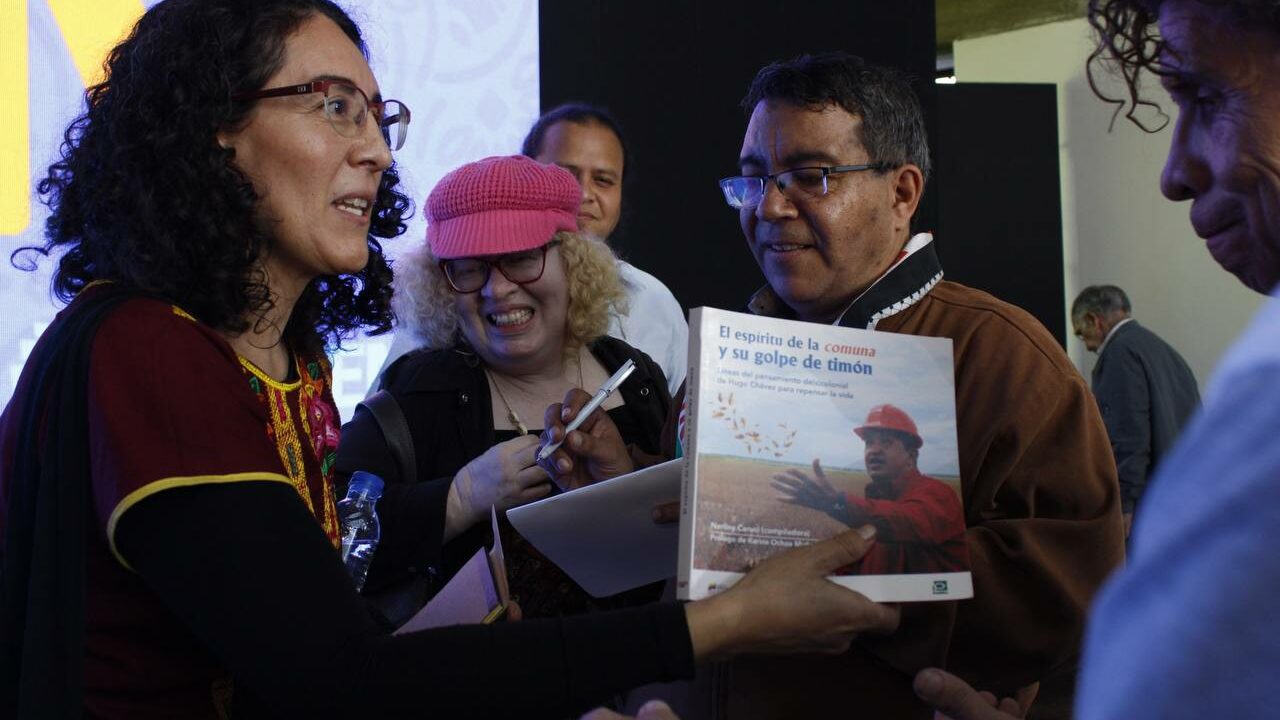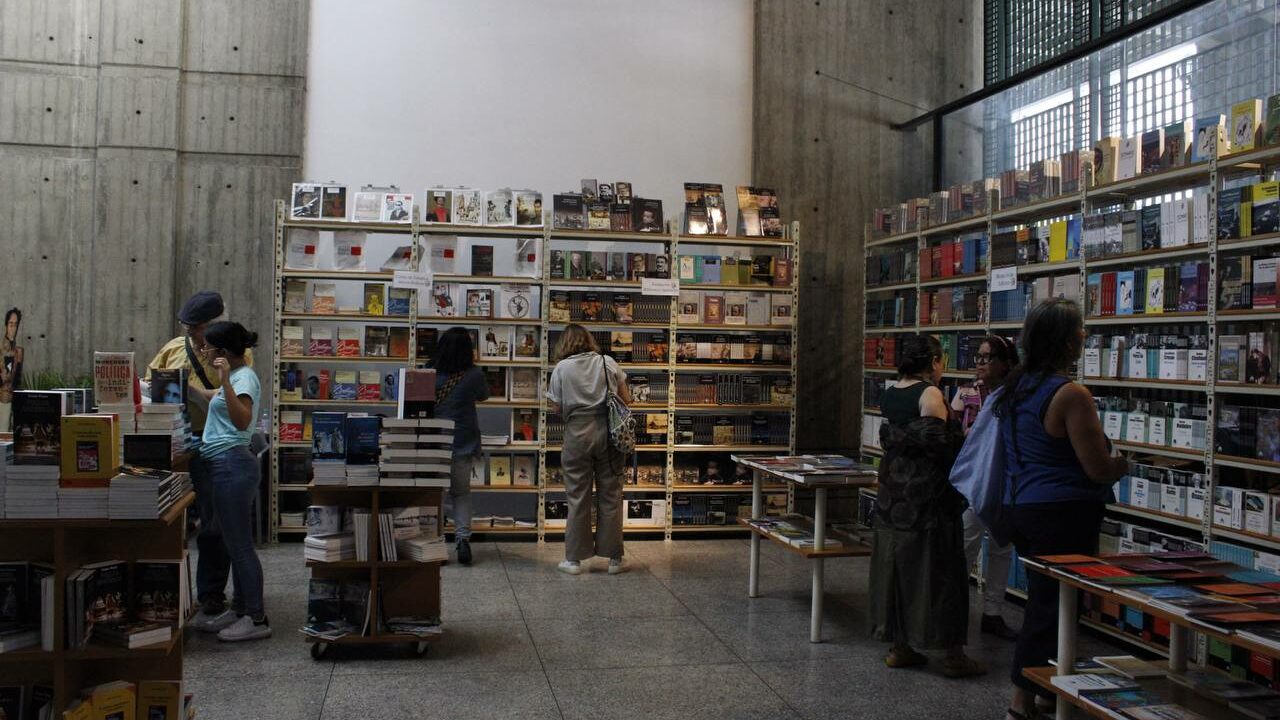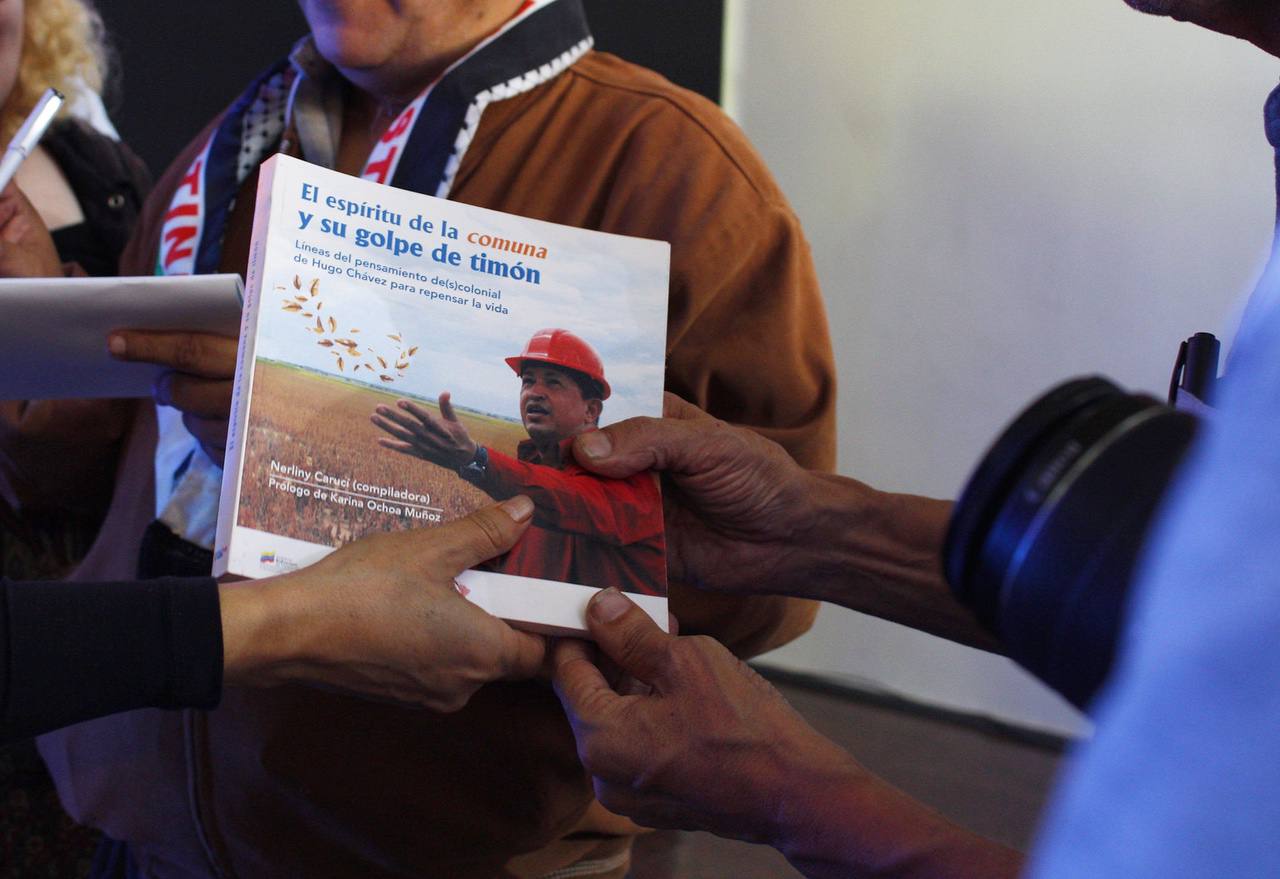On Tuesday, July 16th, the People’s Power Ministry for Communes and Social Movements, together with the Bolivarian Alliance for the Peoples of Our America (ALBA-TCP) and the Pueblos Institute for Original Thought, presented the book “El espíritu de la comuna y su golpe de timón. Líneas del pensamiento (des)colonial de Hugo Chávez para repensar la vida” (The spirit of the commune and its change of course. Lines of Hugo Chávez’ (de)colonial thought to rethink life”).
The event, which took place within the context of the International Book Fair of Venezuela 2024 (FILVEN), featured the participation of Mexican sociologist Karina Ochoa as the prologue writer; the compiler of the text, social communicator Nerliny Carucí; and the president of the Pueblos Institute for Original Thought, Luis Berrizbeitia.
During her participation, Karina Ochoa expressed that this “is a book that recovers part of the speeches that Hugo Chávez made over many years, but also records the personal transformation of a man who understood that the struggle could not only be about humanizing capitalism. Chávez understood that it was necessary to go further, and in 2012 it became very evident that the commitment to the commune would be the path to follow. It was the moment when Chávez understood, in decolonial terms, that the commitment was to the people, to ‘us’, and that we had to leave behind the egoic ‘I’ of modernity to become a collective ‘us’.”
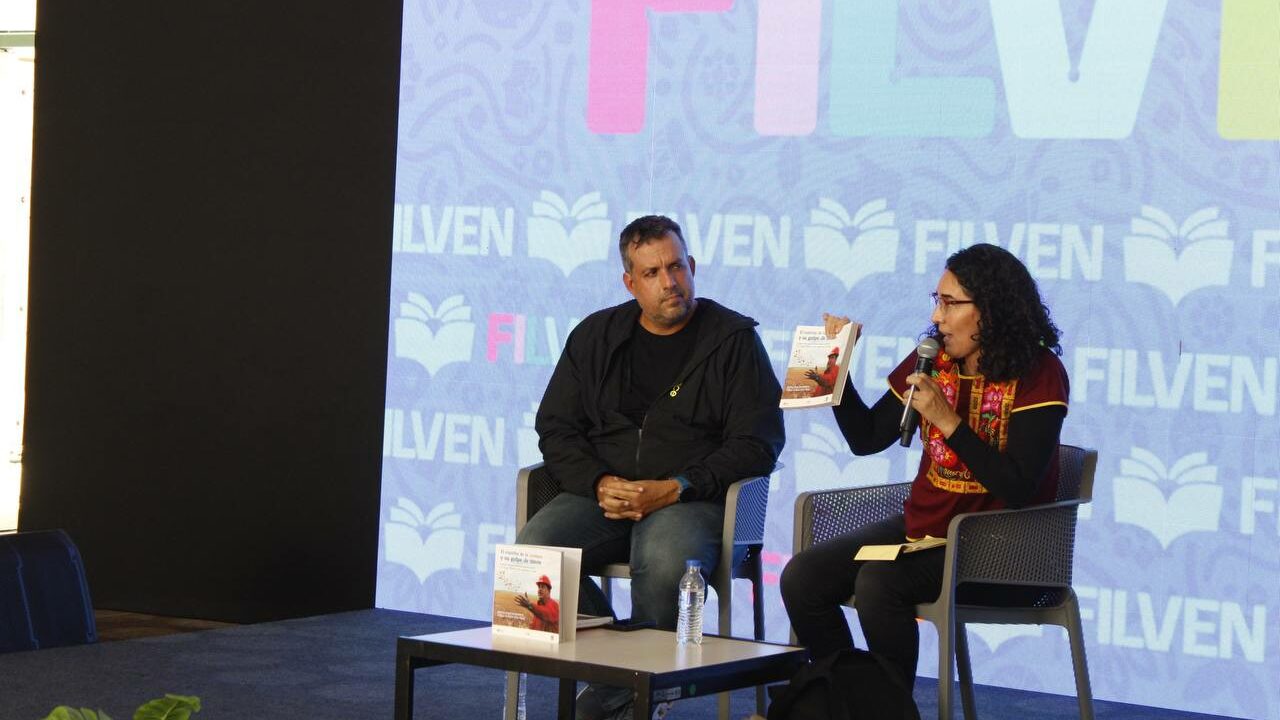
In her speech, the decolonial teacher pointed out that “‘The spirit of the commune and its change of course’ is a book that invites us to change our way of thinking and leaves us with a reference point of radical Chávez and decolonial Chávez. An experience that must be read in Latin America.”
The text “‘The spirit of the commune and its change of course’ is a new child that Comandante Chávez gives us. It is the possibility to remember that this struggle continues and it is the opportunity to return to hope”, she pointed out.
Additionally, Nerliny Carucí, the compiler of the mentioned book, stated that “at this historical moment in which humanity is facing a planetary crisis, when the exhaustion of essential goods of life and the desperation of capitalism and its imperial model are overwhelmingly evident, the message of Chávez, especially mature Chávez, invites us to reflect on these tensions from a territorial perspective and from the organized and conscious people.”
The Venezuelan social communicator emphasized that “the words of mature Chávez have a profound reflection, as a result of his political practice and daily decolonial exercise, which can give us insights to redefine the horizon of resistance against a declining model.”
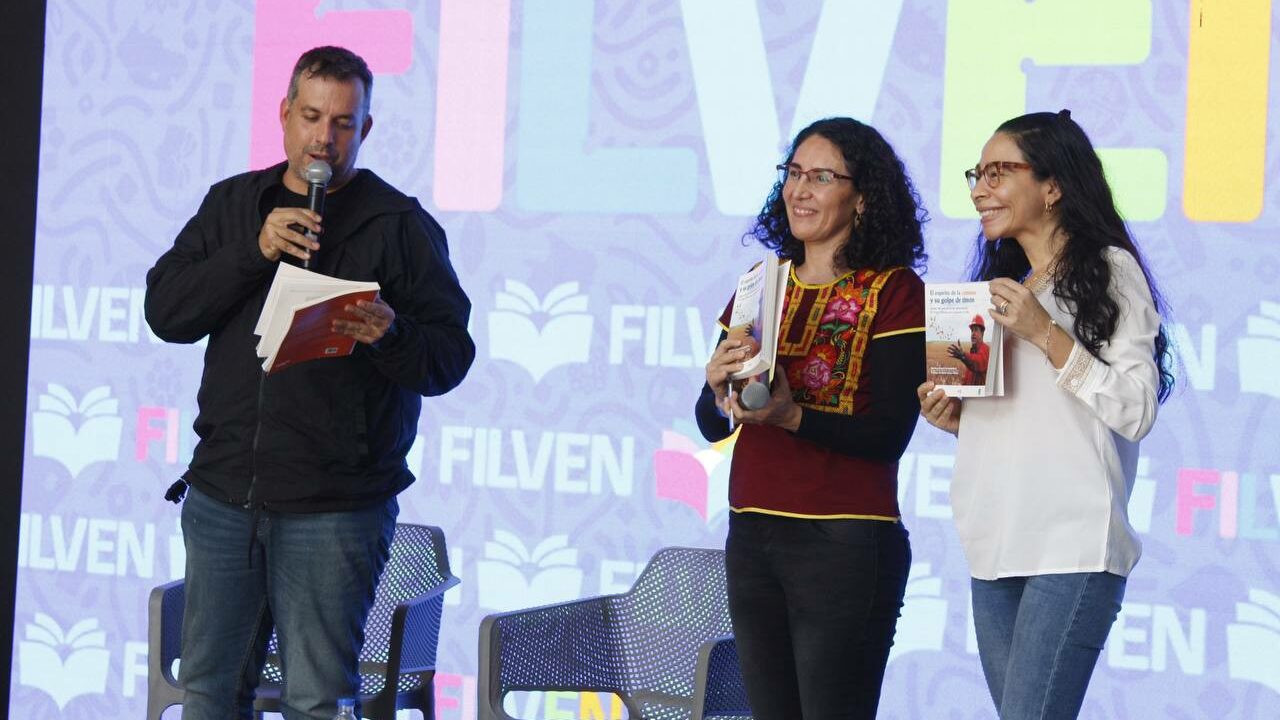
Carucí affirmed that “Chávez, this radical and decolonial Chávez, born out of his process of transformation in walking and thinking, proposes a communal political project that incorporates Mother Earth as a subject of another way of life.”
Nerliny Carucí emphasized that “in Chávez, the notion of territory is not an empty territory: it is a space that has culture, history, sovereignty, spirituality, and sustainability. Chávez sees territory as a living space that must ecologically work along with its communities. It is about the Pachamama, communal, truly human message; an unavoidable imperative to make the civilizational turn we need in the present.”
Meanwhile, Luis Berrizbeitia, the president of the Pueblos Institute for Original Thought, stated that “in the text ‘The spirit of the commune and its change of course,’ we find a good dose of the different dimensions of Commander Chávez’ thought. These dimensions are essential to understand the decolonial horizon in Venezuela and crucial topics such as territory, socialism, and community, which are essential elements to counteract the current civilizational model. In Chávez’ ideas lie the foundation for building a free homeland and developing the necessary Latin American revolution for these times.”
The book “The spirit of the commune and its change of course. Lines of Hugo Chávez’s (de)colonial thought to rethink life” consists of 340 pages and is divided into seven sections: an introduction; Portrait of the spirit of the commune; Decolonization as mediation between modern/capitalist mode of existence and communal way of life; Communal socialism; Communal socialism and the five battlefields against a declining civilization; Can we think about revolution from other logics? and the commitment of those who build community.
